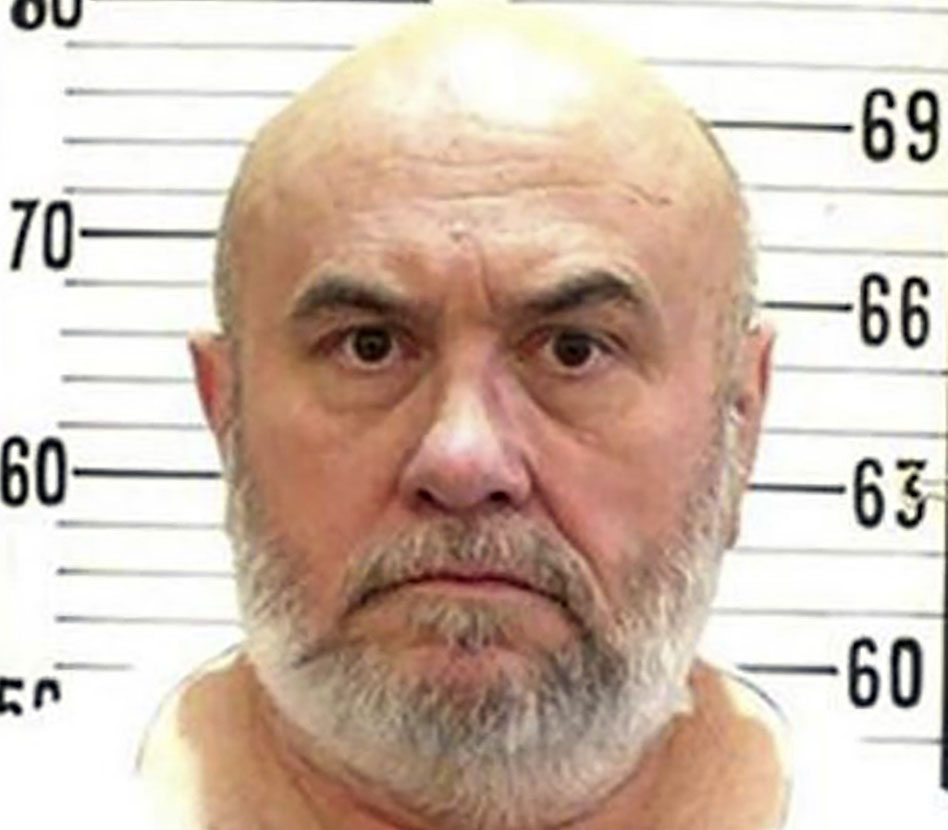US man set to die in Tennessee electric chair
Death row inmate Edmund Zagorski, 63 has opted to die by electric chair in Tennessee (Jose ROMERO)
Chicago (AFP) – A convicted murderer faces death by electrocution in Tennessee Thursday, taking the rare step of opting for the US state’s electric chair rather than a lethal injection as the mode of execution.
Barring a last minute stay, Edmund Zagorski, 63, is scheduled to be strapped into the chair at 7:00 pm (0000 GMT Friday) at a state prison in Nashville and be given two 1,750-volt shocks.
The prisoner has requested a final meal of pickled pig knuckles and pig tails.
Zagorski was sentenced to death for the 1983 murders of two men he lured into a wooded area with a promise to sell them 100 pounds of marijuana. The victims’ bodies were found two weeks later, shot and their throats slit.
The last time the electric chair was used in Tennessee was in 2007, and this would be first electrocution in any US state since 2013.
Neysa Taylor, a spokeswoman for Tennessee’s Department of Corrections, said the chair was inspected October 10 and tested two days later.
“The department will carry out the execution in accordance with the state’s protocol,” she said.
Only nine US states employ electrocution as a form of capital punishment, and Tennessee allows it as an alternative to lethal injection only for crimes committed before 1999.
The Sixth Circuit Court of Appeals denied several motions Wednesday, but Zagorski’s lawyers could still appeal to the US Supreme Court.
Zagorski initially had challenged the state’s use of a three-drug lethal injection cocktail, including the sedative midazolam.
But when the state supreme court rejected the challenge, he asked to be put to death by electric chair instead.
His lawyer Kelley Henry said then that the state had forced Zagorski to “choose between two absolutely barbaric methods of death.”
“The state’s three-drug protocol is certain torture,” she charged.
The drug has been the focus of numerous legal challenges in death penalty cases as lawyers have argued it cannot adequately prevent suffering during executions.
– ‘Macabre requirement’ –
“What we’re seeing in Tennessee is a direct result of the US Supreme Court’s macabre requirement that prisoners propose an alternative method of execution before the court will evaluate whether the method the state seeks to use is unconstitutionally cruel,” said Robert Dunham, head of the Death Penalty Information Center.
“It says a lot about the failures of lethal injection as a method of execution that a prisoner would opt for a method he considers to be a half minute of torture instead of one he considers to be 18 minutes of torture.”
Electrocution has only been used nationwide for 14 executions out of nearly 900 since 2000, and has not been used at all since 2013.
The southern state last carried out an execution in August, when it used the three-drug combination to put to death a man convicted of raping and murdering a child in 1986.
Disclaimer: This story has not been edited by Siliconeer and is published from a syndicated feed. Siliconeer does not assume any liability for the above story. Validity of the above story is for 7 Days from original date of publishing. Content copyright AFP.


